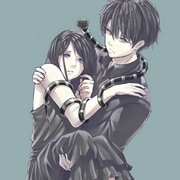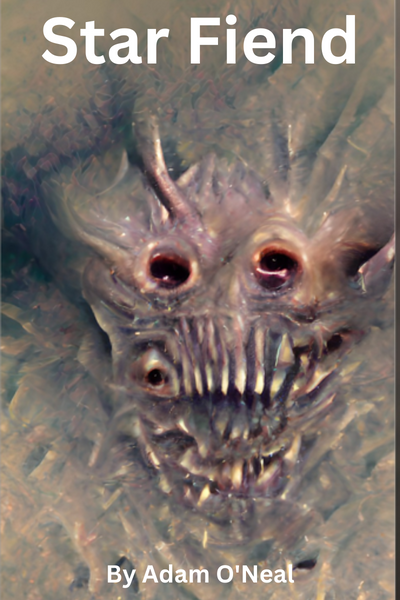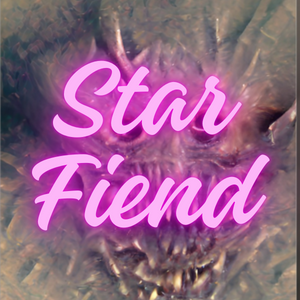As the sun began to rise, we reached the outskirts of Orava. Under a dead, grey sky we ordered a scout to move in closer.
A three-story courthouse made of solid granite sat in the dead center. On all four sides the streets were lined with a mixture of fancy shops and law offices. From this focal point, the town stretched out, with most of the structures on two larger roads, one leading north and the other to the southwest.
Behind the township, purple mountains stretched out far, their white caps stabbing the sky. Just above them, a soft glow. This was the light from the larger city. This was like a beacon, a beacon which drowned out the majesty of the cosmos.
A buzz of fear and anger pounded against our senses. It was coming from the police station. Staying hidden, the scout moved in closer.
The townsfolk were gathered around the station. Their attire that spoke of cold weather and hard work. Many of them were armed, small pistols hiding in coats and waistbands. A news van was parked nearby.
A man stood in front of the station’s entrance. He man wore a khaki uniform and had a gun on his hip. He called out to the crowd, asking them to quite down. Then he gave them the briefing.
“A forest ranger found the bodies while investigating a fire. The fire’s cause is unknown, possibly from the crash of an aircraft. No survivors or suspects were found. Investigators will arrive in a few days to take a look at the wreckage.”
“We don’t care about a plane!” an older woman yelled, “We want to know what happened to those kids! What about the murders!”
Many others showed agreement in a very harsh manner. They looked around at each other, taking comfort in their shared discontent.
“We will find who did this. They will be brought to justice,” the sheriff assured them.
A voice rose up from the crowd. It struck hard, was bold, brash, “I don’t believe you.”
“What did you say?”
“I said. I. Don’t. Believe. you.”
The objection came from a young man, handsome and in shape, walking confidently. His dishwater blond hair was on the short side, but not quite military. He wore new, clean denim jeans, along with a pair of cowboy boots. His letterman jacket was blue and white, proclaimed him to be a member of the football team, and had “#6” and “Gavin” sewn on it. The crowd cleared a path for him as he approached the podium.
“The Richards boy. I should have known,” the sheriff said, disgust dripping off every word.
He stopped, now standing at the head of the gathering, “What did you do last year, when that cult of weirdos came into town?” before the officer could answer the question, Gavin did it for him, “You did nothing. You let them do whatever they wanted. A lot of folk got hurt, a few even got killed.”
The crowd gave its opinion, a raw opinion, laced with bitter shouts. Many heads nodded in agreement.
“You aren’t in high school anymore. And you aren’t at the pulpit right now,” the lawman shot back, his face livid.
“What is that supposed to mean?” the young man asked tauntingly.
The officer’s words had venom in them, “It means that you aint in charge. Let grown men handle this.”
A few laughs, which were outweighed by boos.
“Well, I guess that we will see,” Gavin declared, before fading back into the crowd.
Then from the back of the gathering a gruff, forceful voice, “I’m not a fan of this kid, but he has a point. Are you sure that you can deal with whoever’s out there?”
He was middle-aged. A scar next to his left eye, like a little chunk of flesh had been ripped off. His hair was on the long side but was kept off of his shoulders.
His jeans were ragged, his surplus combat boots scuffed. He wore a field jacket. The colorful patches on the sleaves contrasted with the camouflage pattern. Above one breast pocket, “U.S. ARMY,” and above the other, “Rosemond”
In one of that jacket’s waist pockets, that same mixture of powered chemicals, he was armed.
“What makes you think that I can’t?”
“Like the kid said, you let those hippies run wild last year,” he coolly offered.
“And when I find enough evidence, you will spend the rest of your life behind bars.”
Still frowning, the sheriff ended the proceedings, ignoring the barrage of questions from the press and well-aimed objections of the townsfolk. People started leaving. Others milled around, chatted. Outrage and fear in every eye. A strong gust of wind hit, causing them to brace against the sudden chill.
Gavin strode over to the veteran, “John, what brings you into town?” he asked with a vicious version of pleasantness.
John sounded like it was just another day, “Oh, I just thought that I would see what all of the excitement was about.”
Gavin’s eyes, his smile felt like carefully sharpened knives, “You didn’t kill those campers, did ya?”
“Not my style. You rape any of your parishioners yet?” John asked without skipping a beat.
“Why would I rape them when they are willing? Especially Mr. Hawley’s wife. She wants it so bad,” it was unclear if he was being serious or not.
“I like you, kid. You’re a sick fuck, a real sick fuck. Reminds me of Stevenson. He killed more Vietcong than the rest of us put together, had a lot of fun doing it too. Always had a smartassed comment. Was always chasing local girls. He had this duffel bag, one of the big military issued ones, the kind that you could fit all of your clothes in. Carried it everywhere. And it stank, stank to high heaven. One day we got sick of it. So, we took it away from him and opened it up.”
“Okay, you got me. What was in his duffel bag?”
“Heads. Human heads. He had been cuttin’ the heads off dead Charlie after firefights.”
The young man was fascinated, yet kept his cool, “Why did he do it?”
“He said that it was what needed to be done. That was it. In his mind that was enough of an explanation.”
“Maybe he’s the one that killed those campers,” Gavin jokingly suggested.
“Na. Stevenson would have made an even bigger mess,” John turned and started walking away, “See ya around.”











Comments (0)
See all